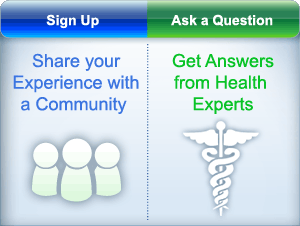Health Chats
Breast Cancer Genetics
Wednesday Sep 23, 2009, 12:00PM - 01:00PM (EST)
Department Chair and Founding Director
Cleveland Clinic
Genomic Medicine Institute, Cleveland, OH
Can your genes predict your future?<br><br>
Join Dr. Charis Eng, Chairwoman and Director of the Genomic Medicine Institute at the Cleveland Clinic, for a live chat and get answers about how genetics impacts the likelihood of being predisposed to breast cancer from one of the world's foremost experts in cancer genetics.<br><br>
The Genomic Medicine Institute is poised to significantly change the way we practice medicine as we know it today. It builds on current knowledge by performing ground-breaking innovative genomics (all your genes together) and focused genetic research (one or a few genes), results of which can be utilized to tailor healthcare to each individual. If they are successful, in the future it will be possible to accurately predict who is at risk for certain diseases, such as breast cancer, so that clinical screening and lifestyle changes can be instituted, and be able to choose specific drugs with the highest likelihood of response and least likelihood for side effects.<br><br>
Dr. Eng is leading the charge to dramatically change the way medicine is practiced at the Cleveland Clinic. Dr. Eng grew up in Singapore and Bristol, UK, and entered the University of Chicago at the age of 16. After completing a PhD and an MD at its Pritzker School of Medicine, she specialized in internal medicine at Beth Israel Hospital, Boston, trained in medical oncology at Harvard's Dana-Farber Cancer Institute and was formally trained in clinical cancer genetics at the University of Cambridge and the Royal Marsden NHS Trust, UK.<br><br>
Dr. Eng and her outstanding team analyze the links between family medical history and disease predisposition. For example, each woman in the general population in this country is at 11% lifetime risk of developing breast cancer, however if a breast cancer gene is mutated (changed or has faults), the lifetime risk of developing breast cancer can be up to 8 times as high (80%). Currently, 8 breast cancer disposition genes have been identified.<br><br>
The focus of this Health Chat will be on understanding genetics and genomics and their impact on prevention and treatment of breast cancer.

Eddy126:
If my genetic test was negative, do I need to have my two daughters be tested for genetic test. I was diagnosed with breast cancer in 2005.

Charis Eng, MD, PhD:
No. I am assuming you had the most complete testing - there are additions to BRCA1/2 testing around April 2004 so please ensure you got the comprehensive test and BART.

SueYoung55:
I didn't know there were 8 breast cancer genes. Since we've had the BRCA testing already, would this require more testing?

MedHelp:
This will be the final question for this chat.

Charis Eng, MD, PhD:
Good question: this is why it's important to be evaluated by cancer genetics professionals - depending on your own clinical features and/or your family history, then the next most likely breast cancer gene to test will be offered.

MedHelp:
Thank you everyone for joining today's chat. And a big thanks to Dr. Eng for taking time out of her busy schedule to answer everyone's questions. If you still have questions about breast cancer, please join us on Tuesday, October 6th for a chat with Dr. Joseph Crowe with Cleveland Clinic. http://www.medhelp.org/health_chats/register/29


